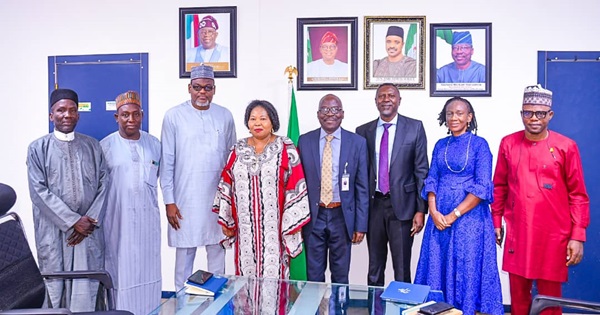
The Minister of Marine and Blue Economy, Adegboyega Oyetola has affirmed the ministry’s commitment to advancing the sector by aligning with President Bola Ahmed Tinubu’s policy reforms aimed at enhancing the business environment in Nigeria.
During a courtesy visit in Abuja by members of the Oil Producers Trade Section (OTPS) led by its executive director, Gwueke Ajaifia, Oyetola emphasised the government’s awareness of current challenges and its strong interest in fostering partnerships, fostering investor-friendly conditions and promoting growth within the sector.
Represented by the permanent secretary of the Federal Ministry of Marine and Blue Economy, Oloruntola Olufemi, the minister highlighted the ministry’s dedication to achieving the administration’s objectives and addressing obstacles that hinder goal achievement.
Olufemi stressed the importance of transparency and cooperation, urging stakeholders not to succumb to illicit demands that could undermine the system. He assured stakeholders that the ministry is open to addressing issues promptly and emphasised the significance of timely communication.
The permanent secretary also underscored the significance of the ministry’s commitment to the sector following the establishment of the Federal Ministry of Marine and Blue Economy, stating that this move demonstrates a strong political will to support the industry.
Ajaifia emphasised the critical role of the marine sector in oil production, noting that over 60 per cent of oil production originates from this domain. OPTS, affiliated with the Lagos Chamber of Commerce, represents the oil and gas sector with 29 members, including 5 international oil companies.
Ajaifia raised concerns about the Nigerian Maritime Administration and Safety Agency’s (NIMASA) proposed involvement in marine waste management, citing potential issues of multiple taxation for industry players. He urged the minister to intervene in addressing these challenges, particularly the burden of multiple levies imposed by government agencies, which is adversely impacting companies and prompting some IOCs to leave Nigeria due to security issues and high production costs in the marine sector.

